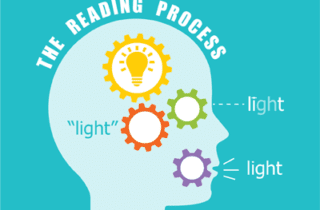Presented by Kate Walsh, President, National Council on Teacher Quality
Moderated by Terrie Noland, Ph.D., CALP, Vice President, Educator Initiatives, Learning Ally
Presented by Rita Ferrandino, Innovation Consultant, Catalyst @ Penn GSE – University of Pennsylvania and Founding Partner, Arc Capital Development; Becky Mungle, Professional Development Director, Readable English; and Tammy Miller, Chief Academic Officer, Readable English
Presented by Dr. Maryanne Wolf, Director of the Center for Dyslexia, Diverse Learners, and Social Justice, UCLA Graduate School of Education and Information Studies
Moderated by Barbara Pape, Director of Policy and Communications, Learner Variability Project, Digital Promise
Presented by Hue-An Wren, Ed.D., Teacher on Special Assignment, Garden Grove Unified School District (CA)
Moderated by Jennifer Ehehalt, Sr. Regional Manager, Common Sense Education
Presented by Tammy Miller, Vice President of North America, Readable English; and Becky Mungle, Principal, Templeton Elementary School, Monroe County Community School Corporation (IN)
Your school has made headway on literacy development. Students are reading more and thinking critically about what they write. And then there’s, well, a pandemic. Teaching and learning move out of the classroom into the virtual world, putting literacy gains at risk. How do you continue developing your students’ reading and writing skills from afar? How do they avoid the COVID slide potential?
If young students say the letter R makes a /rih/ sound and M makes the /muh/ sound, there is a strong chance they might have trouble learning to read. While they studied the letters A to Z and their sounds, they probably cannot link them to actual words.
Presented by Danielle Mastrogiovanni, Supervisor of Humanities, New Brunswick Public Schools (NJ); Michelle Hagerty Silano, Reading Specialist, New Brunswick Public Schools (NJ); Stephanie Miele, Teacher, New Brunswick Public Schools (NJ); and Jessica DeLuca, First Grade Teacher, New Brunswick Public Schools (NJ)
Presented by Terrie Noland, CALP, Doctoral Candidate, Ph.D. in Literacy
Dr. Jan Hasbrouck shares the latest research on dyslexia and explains how it can be used to guide effective and comprehensive instruction.










